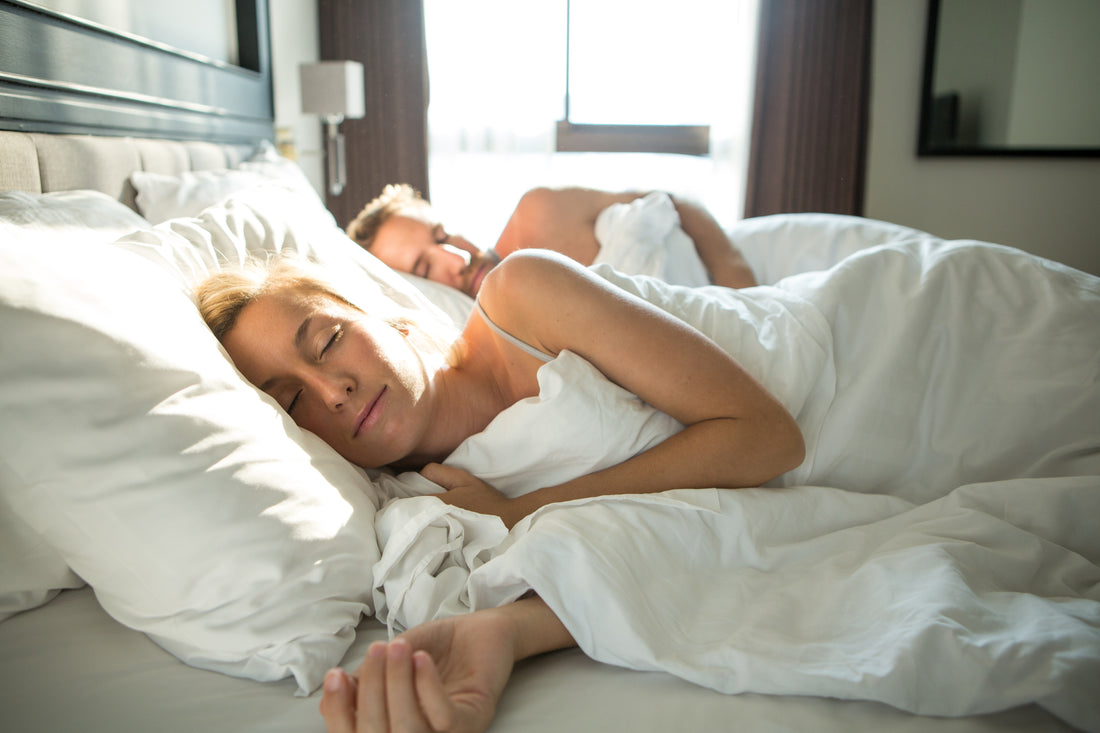It's common: the older we get, the harder it is to get a good night's sleep. Indeed, more than 50% of the Canadian population over the age of 65 have difficulty falling asleep or staying asleep. 2 biological factors are to blame:
Role of SCN (suprachiasmatic nucleus)
SCNs are two structures located in the brain at the base of the hypothalamus that control circadian cycles. Aging leads to deterioration of SCN function and therefore disrupts these circadian rhythms, directly influencing when people feel tired and alert.
Role of Hormones
Changes in the production of hormones, such as melatonin and cortisol, also play a role in sleep disturbances in older people. As people age, the body secretes less melatonin, which is normally produced in response to darkness which helps promote sleep by coordinating circadian rhythms.
Some factors are out of our control, but there are a few simple solutions you can act on today to improve your sleep
Watch what you sip
Do you wake up at night to go to the bathroom? Be careful what you drink. Herbal teas have a relaxing effect and are very popular for helping the body and mind decompress, but it is best to stop drinking them at least 2 hours before bedtime to avoid nighttime awakenings.
Refresh your room
Did you know that sleeping in a cool bedroom can improve your sleep quality and help fight insomnia? Experts recommend setting your bedroom temperature to a maximum of 20°C for optimal sleep.
According to Harvard Medical School[1], our internal temperature drops during the night in order to conserve energy. Sleeping in a cooler room will help you reach that level faster, which in turn will help you fall asleep (and stay asleep) faster.
Craft a pre-sleep routine
It sounds very simple, but it has been scientifically proven: repeating the same gestures at the same times every night signals to the body and mind that bedtime is approaching. Our experts recommend turning off screens at least an hour before bedtime, dimming the lights, and choosing to perform a serene activity like gentle stretching or reading.
Take a natural supplement
Adding a natural supplement to your pre-sleep routine can also help you fall asleep faster and stay asleep longer.
Discover our line of natural sleep aids
[1] http://healthysleep.med.harvard.edu/healthy/science/what/characteristics

